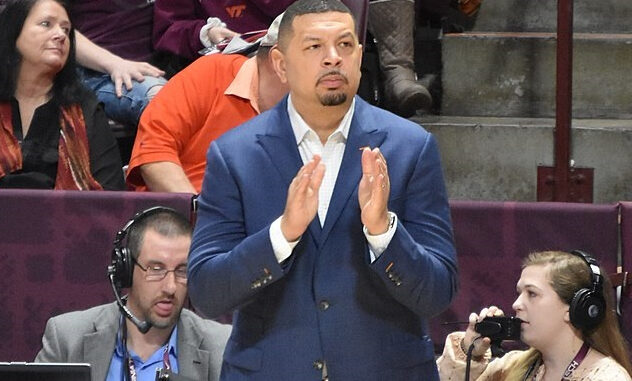
Luke Henne | Editor-in-Chief
March 16, 2023
As a lifelong Pitt fan, it wasn’t hard to tell that, when Jeff Capel was hired to lead the Panthers’ men’s basketball program in March 2018, there was a tall task in front of him.
His predecessor, Kevin Stallings, had sunk the program to arguably the lowest point it’s ever seen. An 8-24 (0-18 in Atlantic Coast Conference play) season the year prior, plummeting attendance and a fanbase and program that had lost almost all its pride.
And for the past four seasons, it looked like Capel was continuing on the path Stallings had created. Things didn’t get better. Recruits came in, but then they left. The wins never came, nor did the postseason appearances. Attendance still stagnated.
Pitt Athletic Director Heather Lyke faced a difficult decision after Capel’s team finished 11-21 during the 2021-22 season. After four seasons, it looked like he’d made no growth. With a football program that had just won its first-ever Atlantic Coast Conference championship a few months earlier, the school’s premier program — men’s basketball — remained a relic of what it had once been.
I, among many other Pitt fans, were calling for Capel to be fired. Start fresh. Restart this rebuild.
But Lyke gave Capel another chance, and it has paid off in an unforgettable way. Both of the two deserve every ounce of praise they get from here on out.
Capel’s 2022-23 team is currently 23-11, and will be remembered as the team that reversed the course and got Pitt back on the track it’s supposed to be.
This year’s Panthers earned a spot in the NCAA Tournament for the first time since 2015-16, and defeated Mississippi State in a thriller at the First Four on Tuesday. They’ll now take on Iowa State in the Round of 64 on Friday afternoon, days removed from winning the school’s first NCAA Tournament game since 2013-14.
Capel took advantage of a transfer portal that was ripe for the taking. Pitt’s most integral additions — Nelly Cummings, Blake Hinson, Greg Elliott and Federiko Federiko — all came by way of the portal.
He also got Nike Sibande and Jamarius Burton, who’d transferred into the program in prior years, to stay the course despite the tumultuous seasons they’d endured.
Pitt started the season 1-3, including back-to-back blowout losses against West Virginia (25 points) and No. 20 Michigan (31 points), and it looked like more of the same was coming.
Over the next 25 games, the Panthers rattled off 20 wins. This stretch included victories over tournament teams in Fairleigh Dickinson, Northwestern, North Carolina State, No. 11 Virginia and No. 20 Miami. It also saw Pitt best North Carolina, the defending national champion, on two separate occasions.
The Panthers lost three of their final four games entering Selection Sunday, and it looked as if a collapse of epic proportions was in order. Despite being in contention to win the ACC title on the final day of the regular season, Pitt might’ve pulled off the unthinkable by collapsing so hard that it’d outright miss the NCAA Tournament.
But the Panthers were tabbed as one of the final four teams into the field, and they took advantage of their opportunity by beating Mississippi State— just like they have all year long, and just like their head coach did when Lyke gave him another chance.
Now, Pitt will return to the Greensboro Coliseum to take on a very-manageable opponent in Iowa State, which lost seven of its final 10 games prior to the tournament.
It’s the same Greensboro Coliseum where the Panthers were humiliated by Duke 96-69 in the ACC tournament on March 9, a loss that is what primarily put Pitt’s chances of making it into the NCAA Tournament at great risk.
Regardless of what happens from here on out, this season is a win. Just when things looked nearly as bleak as they did when Capel inherited the program nearly a half-decade ago, the program was resurrected.
This Pitt team made history and brought the city’s top basketball team back to relevance.
Give the program’s head coach and athletic director all the credit.

